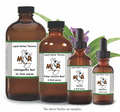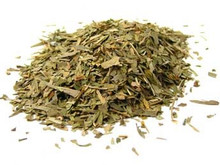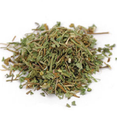 Loading... Please wait...
Loading... Please wait...Product Description
Tulsi Herb
Organically Grown - USA
Also Known As - Ocimum Tenuiflorum
Overview - Tulsi is a flowering annual or short-lived perennial in the mint family that is native to the tropical and subtropical regions of Asia, Africa and, Central and South America. Like its Mediterranean cousin, sweet basil (O. basilicum) tulsi basil is a popular culinary herb, especially in Thai cuisine. Tulsi is also an important Ayurvedic herb and is used in the food, beverage, pharmaceutical and fragrance industries. As a good source of eugenol, it is also used to produce natural insect repellents.
Medicinal Uses - Tulsi has been found to protect organs and tissues against chemical stress from industrial pollutants and heavy metals, and physical stress from prolonged physical exertion, ischemia, physical restraint and exposure to cold and excessive noise.
Active Constituents - Polysaccharides , phenols, flavonoids, neolignans, terpenoids, coumarins, vitamins, minerals and fatty acids. Specific compounds include oleanolic acid, ursolic acid, rosmarinic acid, eugenol, carvacrol, linalool, and β-caryophyllene.
Parts Used - The above-ground parts of the plant.
Precautions - There are no known adverse effects or herb-drug interactions associated with moderate use of this herb. However, high doses or long-term intake of ursolic acid, a major constituent of tulsi basil, may affect fertility or decrease serum glucose to dangerous levels. Use during pregnancy is not recommended due to lack of safety data.
Disclaimer - The information presented herein by Mountain Maus’ Remedies is intended for educational purposes only. These statements have not been evaluated by the FDA and are not intended to diagnose, cure, treat or prevent disease. Individual results may vary, and before using any supplements, it is always advisable to consult with your own health care provider












